
Rustaq: A Glimpse into Oman's Rich Heritage
Nestled in the Al Batinah Region, Rustaq is a city that offers a perfect blend of history, nature, and tranquility. Known for its ancient forts, hot springs, and stunning landscapes, Rustaq is a hidden gem waiting to be discovered by travelers seeking a unique Omani experience. Rustaq Fort, one of the oldest and largest forts in Oman, stands as a testament to the city's historical significance. Built in the pre-Islamic era, the fort has been renovated over the centuries and now houses a museum that offers insights into Oman's rich past. Visitors can explore its towers, dungeons, and courtyards, gaining a deeper understanding of the region's history. Just a short drive from the fort, you will find the Al Kasfah hot springs. These natural springs are not only a popular spot for tourists but also a cherished local retreat. The warm, mineral-rich waters are believed to have therapeutic properties, making it an ideal place to relax and rejuvenate. For nature enthusiasts, Rustaq offers breathtaking landscapes, including the lush Wadi Bani Awf. This wadi is famous for its stunning rock formations, deep gorges, and emerald pools. Adventurers can hike through the wadi, take a dip in the crystal-clear waters, or simply enjoy a picnic surrounded by nature's beauty. Rustaq is also home to several traditional markets, or souqs, where visitors can immerse themselves in the local culture. These bustling markets offer a variety of goods, from handmade crafts and jewelry to fresh produce and spices, providing a sensory feast for all who visit.
Local tips in Rustaq
- Visit Rustaq Fort early in the morning to avoid the midday heat.
- Carry swimwear and a towel for a relaxing dip in the Al Kasfah hot springs.
- Wear comfortable hiking shoes when exploring Wadi Bani Awf.
- Check the local market days to experience the vibrant souqs at their best.
- Bring plenty of water and sun protection when touring the city's outdoor attractions.
Rustaq: A Glimpse into Oman's Rich Heritage
Nestled in the Al Batinah Region, Rustaq is a city that offers a perfect blend of history, nature, and tranquility. Known for its ancient forts, hot springs, and stunning landscapes, Rustaq is a hidden gem waiting to be discovered by travelers seeking a unique Omani experience. Rustaq Fort, one of the oldest and largest forts in Oman, stands as a testament to the city's historical significance. Built in the pre-Islamic era, the fort has been renovated over the centuries and now houses a museum that offers insights into Oman's rich past. Visitors can explore its towers, dungeons, and courtyards, gaining a deeper understanding of the region's history. Just a short drive from the fort, you will find the Al Kasfah hot springs. These natural springs are not only a popular spot for tourists but also a cherished local retreat. The warm, mineral-rich waters are believed to have therapeutic properties, making it an ideal place to relax and rejuvenate. For nature enthusiasts, Rustaq offers breathtaking landscapes, including the lush Wadi Bani Awf. This wadi is famous for its stunning rock formations, deep gorges, and emerald pools. Adventurers can hike through the wadi, take a dip in the crystal-clear waters, or simply enjoy a picnic surrounded by nature's beauty. Rustaq is also home to several traditional markets, or souqs, where visitors can immerse themselves in the local culture. These bustling markets offer a variety of goods, from handmade crafts and jewelry to fresh produce and spices, providing a sensory feast for all who visit.
When is the best time to go to Rustaq?
Iconic landmarks you can’t miss
Al Kasfah Hot Spring
Discover the therapeutic wonders of Al Kasfah Hot Spring in Rustaq, Oman, where nature and relaxation come together in a stunning landscape.
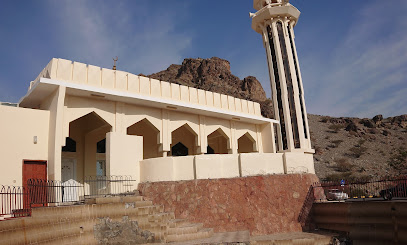
Hoqain Waterfalls
Experience the natural beauty and tranquility of Hoqain Waterfalls in Hawqayn, a perfect escape for nature lovers and adventure seekers alike.
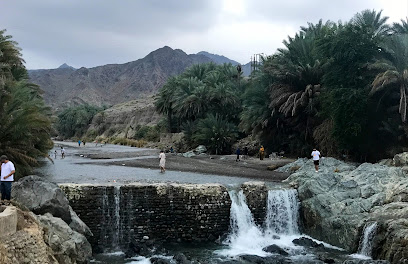
Rustaq Fort
Discover Rustaq Fort: A captivating blend of history, architecture, and breathtaking landscapes in the heart of Oman.
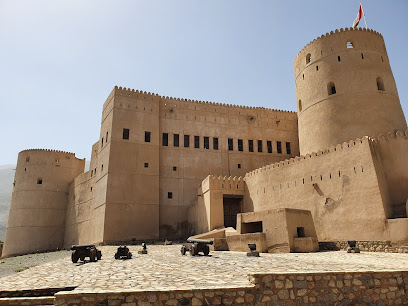
Al-Hazm Fort | حصن الحزم
Discover Al-Hazm Fort, a stunning 18th-century stronghold in Oman, showcasing breathtaking architecture and rich cultural heritage.
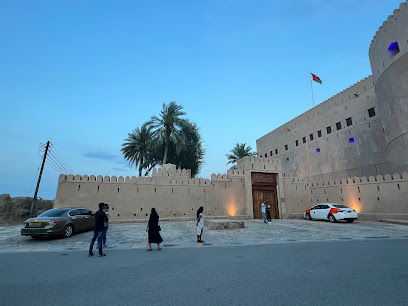
Rustaq Park | حديقة الرستاق
Discover the serene beauty and cultural charm of Rustaq Park, a tranquil escape in Oman perfect for relaxation and family outings.
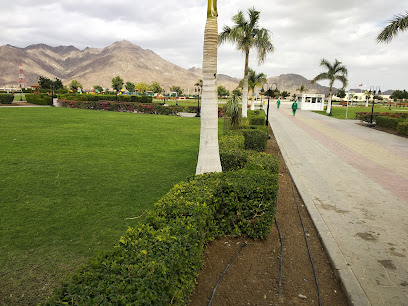
Kadh - Rustaq -mhafezh South Alebatnh- Sultanate of Oman
Discover Kadh in Rustaq, Oman - a captivating tourist attraction blending stunning landscapes, rich culture, and authentic Omani experiences.
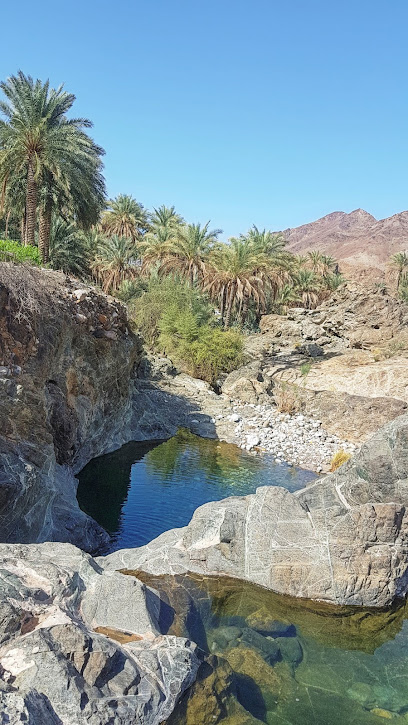
Qusra Museum
Explore the depths of Oman's culture and history at Qusra Museum in Rustaq, a remarkable collection of artifacts and experiences await.
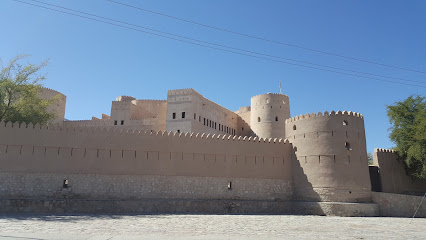
Rustaq City Gate
Explore the Rustaq City Gate, a stunning historical landmark in Oman that showcases the rich heritage and architectural beauty of the region.
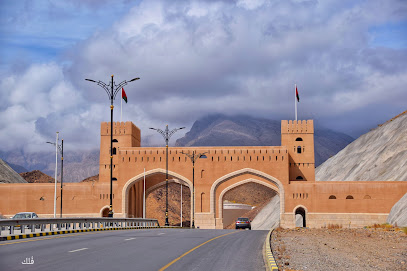
The tomb of Imam Saif bin Sultan AlYaroby
Discover the historical significance and architectural marvel of the Tomb of Imam Saif bin Sultan AlYaroby in Rustaq, Oman, a must-visit for cultural enthusiasts.
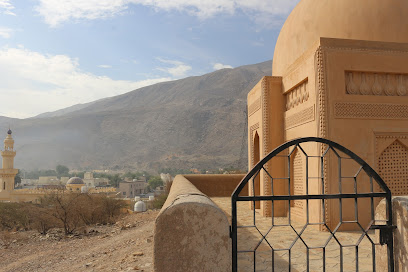
موقع اثري قديم
Uncover the ancient secrets of Rustaq, where Oman’s rich history and stunning landscapes converge for an unforgettable travel experience.
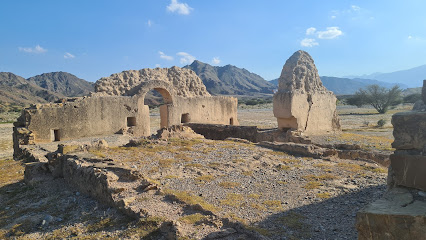
الصوالح
Explore the captivating beauty and rich heritage of Al-Sawalih, a hidden gem in Rustaq, Oman, perfect for nature lovers and cultural enthusiasts.

طوي المنيت
Discover the historical allure and breathtaking landscapes of Tuy Al-Munyt in Rustaq, a must-visit tourist attraction in Oman.

Unmissable attractions to see
Al Hoota Cave
Discover the enchanting beauty of Al Hoota Cave, an extraordinary underground wonder in the heart of Oman's Western Hajar mountains.
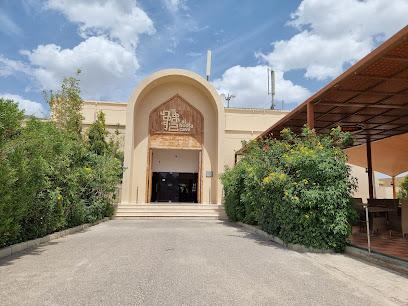
Nakhal Fort
Discover the captivating Nakhal Fort, a historic castle surrounded by magnificent mountains and lush date palms in Oman, perfect for history lovers and adventurers.
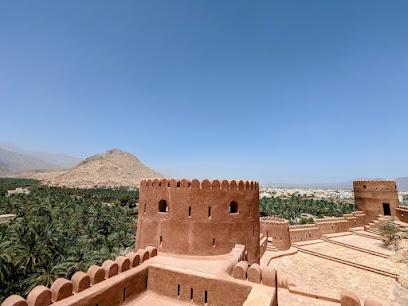
Rustaq Fort
Explore the historical grandeur of Rustaq Fort, a captivating castle in Oman offering rich cultural experiences and stunning mountain views.
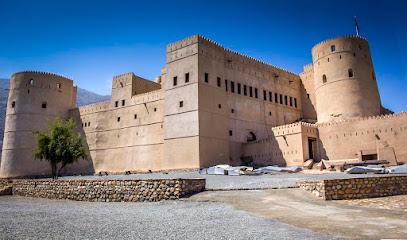
Jebel Shams
Explore the breathtaking landscapes of Jebel Shams, the highest peak in Oman, where adventure meets the stunning beauty of the Grand Canyon of Arabia.
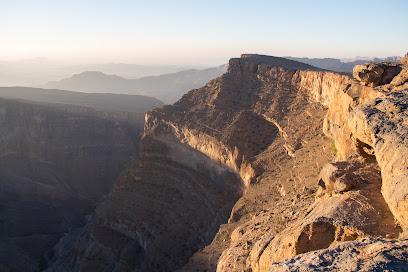
Wakan Village | قرية وكان
Explore Wakan Village, a stunning Omani destination with terraced gardens, breathtaking mountain views, and a rich agricultural heritage.
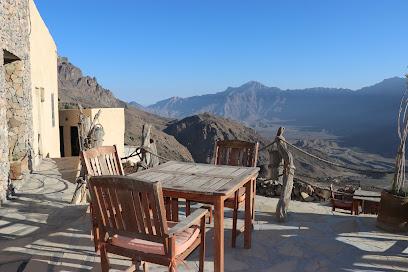
Al-Hazm Fort | حصن الحزم
Explore the historic Al-Hazm Fort in Oman, a stunning blend of rich culture, impressive architecture, and breathtaking views amidst the serene desert landscape.
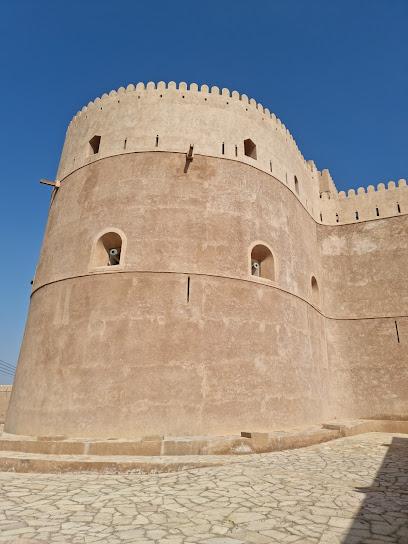
Rustaq Park | حديقة الرستاق
Experience the serene beauty of Rustaq Park, a family-friendly city park in Rustaq perfect for relaxation and local culinary delights.
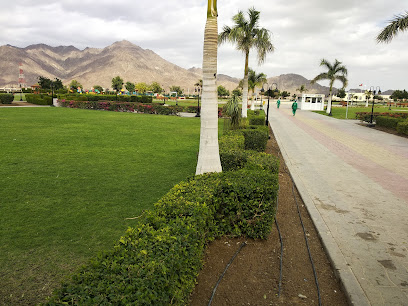
Wadi Al Nakhr
Explore the stunning Wadi Al Nakhr, a natural wonder in Oman, perfect for hiking and experiencing the breathtaking beauty of the Omani landscape.
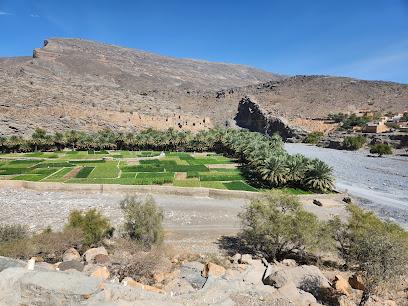
Tanuf Castle Ruins | أطلال حصن تنوف
Discover the enchanting Tanuf Castle Ruins, a historical gem in Oman, where rich heritage meets breathtaking landscapes for an unforgettable experience.
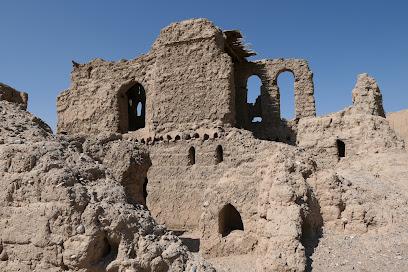
Adventure Snake canyon oman
Experience the breathtaking beauty and adventure of Snake Canyon in Bima, Oman - a must-visit hiking destination for nature lovers.
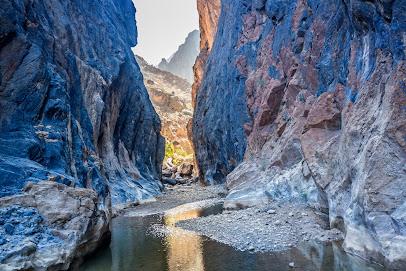
Qusra Museum
Experience the rich heritage of Oman at Qusra Museum, where history and culture intertwine in the heart of Rustaq.
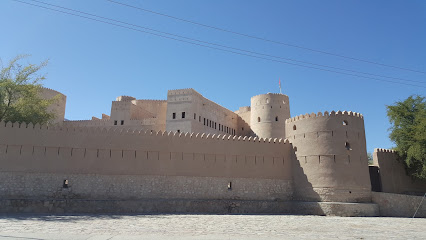
Old Al Hamra village
Explore Old Al Hamra Village, a timeless Omani treasure, where traditional architecture and rich culture await your discovery.
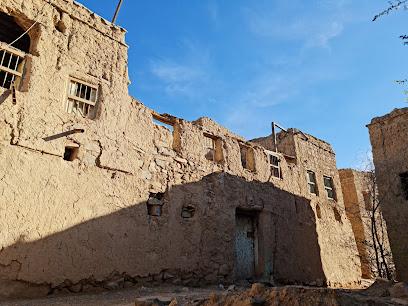
Snake Canyon adventures (Guide+ Tours)
Explore the stunning landscapes of Bald Sayt, Oman, where adventure awaits with hiking, rock climbing, and thrilling outdoor experiences.
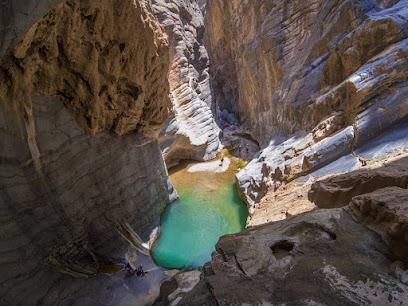
Falaj Al-Mayasser (Al-Muyasser)
Explore the historic Falaj Al-Mayasser in Rustaq, a UNESCO World Heritage site showcasing ancient irrigation systems amidst stunning natural beauty.
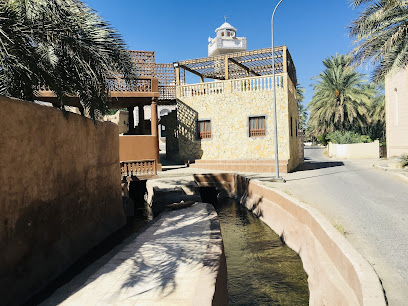
AlJebel Al Sherqie Mountain View الجبل الشرقي
Discover the breathtaking beauty of AlJebel Al Sherqie Mountain, a natural wonder showcasing stunning views and rich biodiversity in Oman.
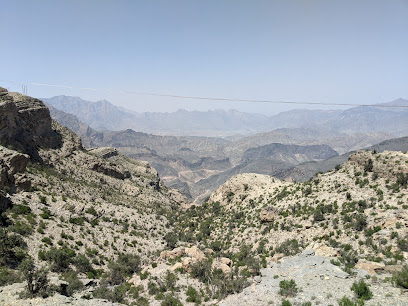
Essential places to dine
Albasim Restaurant
Experience the heart of Omani culture through authentic cuisine at Albasim Restaurant in Rustaq - a must-visit for every traveler.
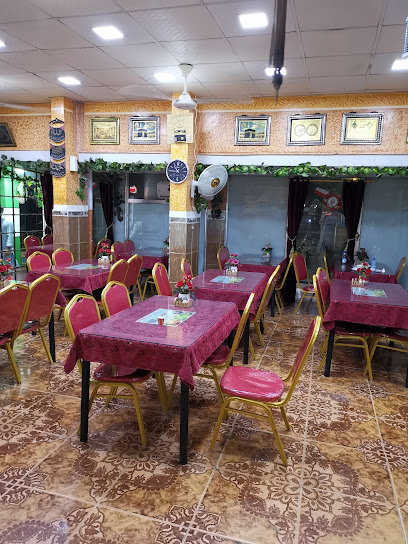
Turkish Star
Discover authentic Yemeni flavors at Turkish Star in Rustaq – a must-visit culinary destination for food enthusiasts.
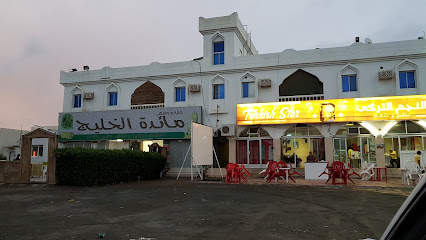
Domino's Pizza
Experience the best pizza in Rustaq at Domino's Pizza - where flavor meets convenience in every slice.
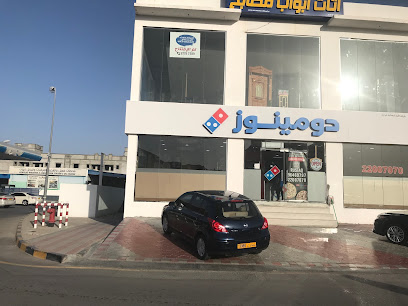
Turkish Taste Restaurant and Coffee Shop
Experience authentic Turkish flavors at Turkish Taste Restaurant and Coffee Shop in Rustaq – a delightful culinary escape!
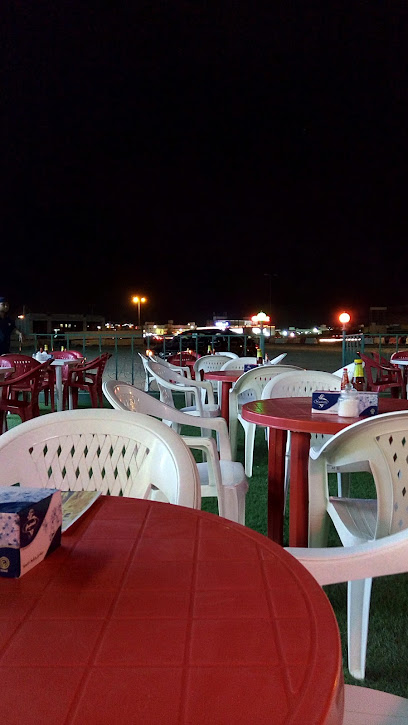
FORT YARD Restaurant & Cafe
Experience the rich flavors of Oman at Fort Yard Restaurant & Cafe in Rustaq—where every dish tells a story.
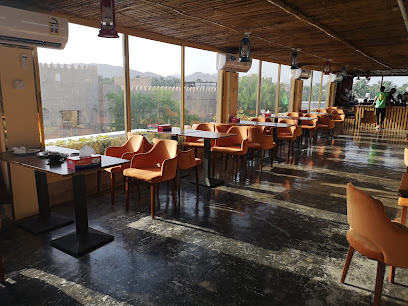
سمكة التنين لبيع وشوي الأسماك والمأكولات البحرية والدواجن واللحوم
Savor the freshest seafood at سمكة التنين - Rustaq's premier destination for grilled fish and delightful culinary experiences.
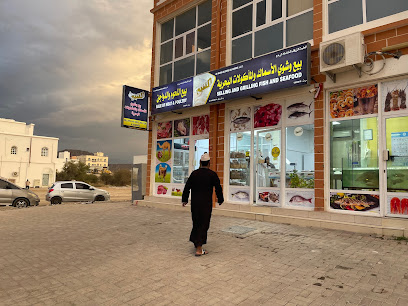
مطعم المذاق التركي
Experience authentic Turkish cuisine at مطعم المذاق التركي in Rustaq – A culinary journey through flavors that delight every palate.
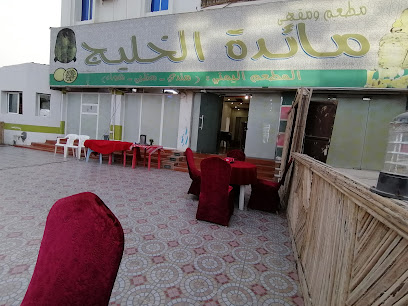
Tabaq طبق من المغرب
Discover authentic Moroccan flavors at Tabaq in Rustaq - your perfect spot for breakfast or dinner.

مائدة العائلة التركي TURKISH FAMILY TABLE
Discover the flavors of Turkey at Rustaq's beloved dining destination – Turkish Family Table offers authentic dishes in a warm atmosphere.
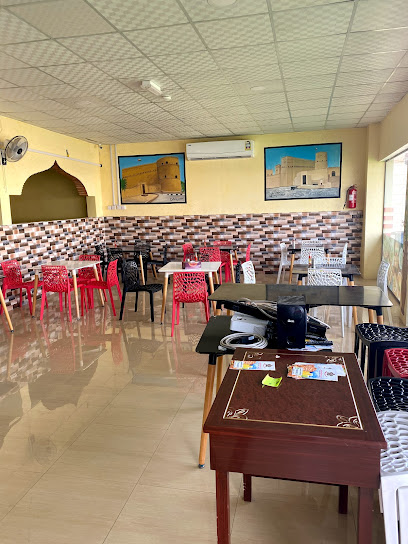
الديوانية للحلوى العمانية, الرستاق العراقي
Savor the authentic flavors of Oman at الديوانية للحلوى العمانية in Rustaq - A sweet journey through traditional Omani desserts.
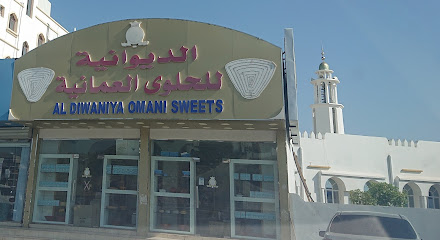
Pizza Hut
Savor delicious pizzas and fast food at Pizza Hut in Rustaq - your perfect dining spot after exploring Oman.
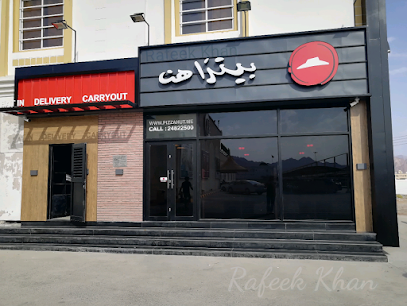
atlala al jabal restaurant Pakistani
Experience the essence of Pakistan through authentic cuisine at Atlala Al Jabal Restaurant in Rustaq.

Pakistan Sweets & Coffee Shop
Experience the rich flavors of Omani tradition at Pakistan Sweets & Coffee Shop – where every bite tells a story.
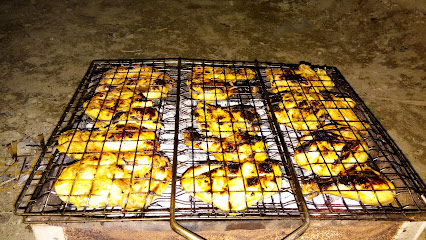
مطعم زمان أول
Discover authentic Omani flavors at مطعم زمان أول in Rustaq's scenic public garden, where every dish tells a story.
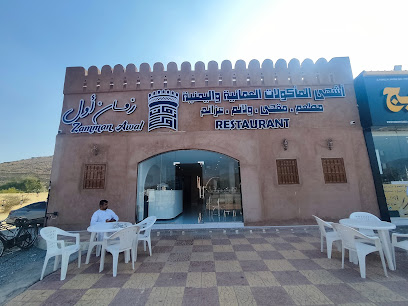
السهوه لبيع وشوي الاسماك والماكولات البحرية والدواجن AlSahwa
Experience the best of Omani cuisine at AlSahwa, Rustaq's premier seafood destination with fresh flavors and warm hospitality.
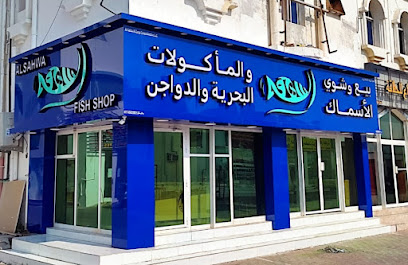
Markets, malls and hidden boutiques
LuLu Hypermarket - Rustaq
Discover the diverse offerings at LuLu Hypermarket in Rustaq, where local flavors meet international shopping experiences.
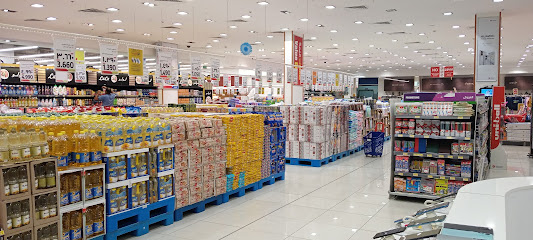
ثمر للخضروات والفواكه الطازجة
Explore the freshest produce at Thamar in Rustaq, Oman, where vibrant flavors meet local culture in a delightful shopping experience.
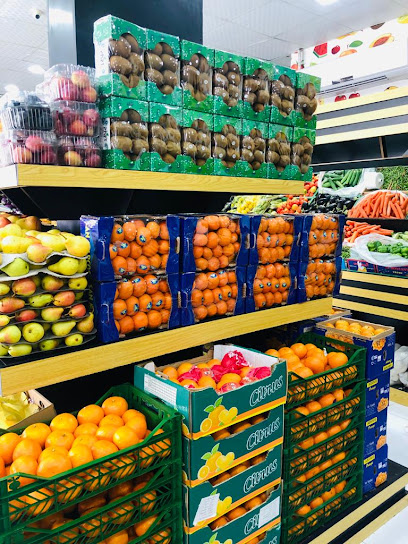
Al Amir Cold Store
Discover quality groceries and local flavors at Al Amir Cold Store, the premier supermarket in Rustaq, Oman.
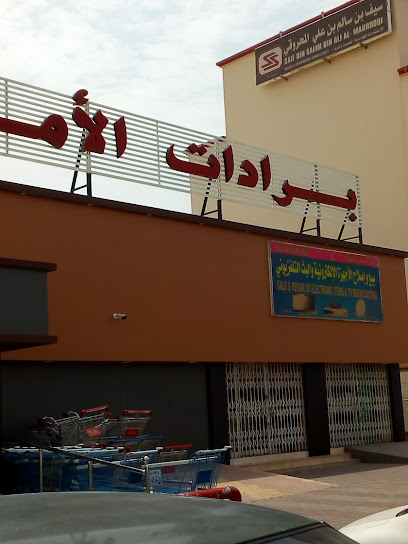
البيت المشرق للأثاث
Explore Al-Bayt Al-Mashriq, Rustaq's premier furniture store, showcasing exquisite craftsmanship and a diverse selection for every home.
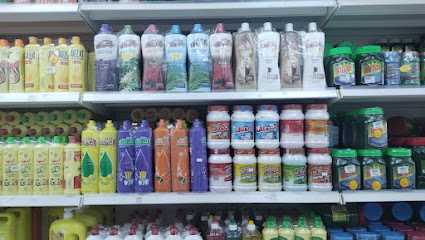
مركز الفعوان للتسوق
Discover unique clothing and immerse yourself in the vibrant shopping culture at مركز الفعوان للتسوق in Rustaq, Oman.
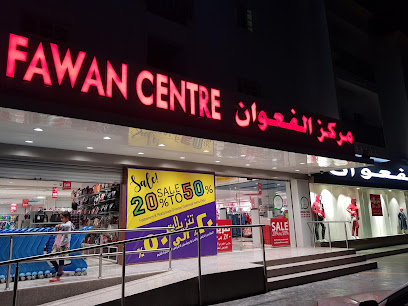
Rwnas for flowers and gifts shop
Explore Rwnas in Rustaq for exquisite flowers and unique gifts, a perfect reflection of Oman's rich culture and beauty.
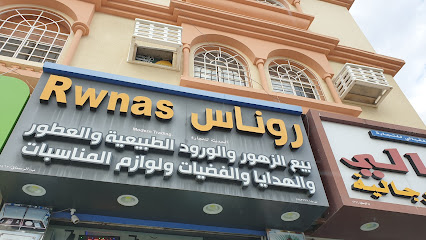
متجر dev
Explore a diverse array of quality products and exceptional service at متجر dev, a must-visit shopping destination for tourists.

Zuraiq Textiles - Rustaq
Explore the exquisite world of traditional and modern textiles at Zuraiq Textiles in Rustaq, a fabric lover's paradise.
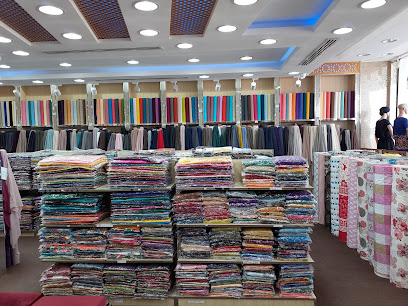
صوغ
Explore the exquisite craftsmanship of Sugh Silversmith in Rustaq, where tradition and artistry come to life through stunning silver jewelry.
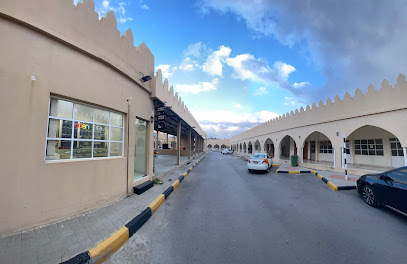
البسامي للتجارة للفضيات و الأحجار الكريمة والهدايا
Explore Al-Basami Trading in Rustaq for exquisite jewelry and unique gifts that embody the rich craftsmanship of Oman.
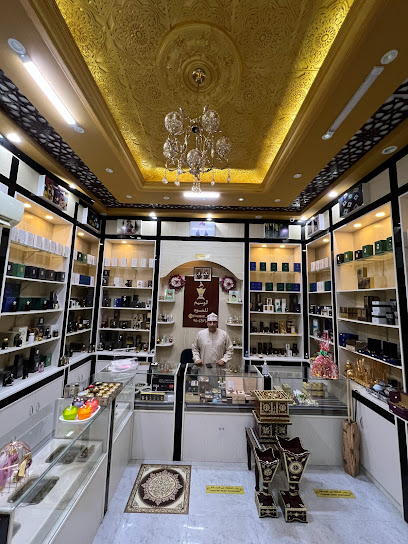
Splash
Explore Splash in Al Rustaq for an exciting blend of trendy clothing and local style, making your shopping experience truly unique.
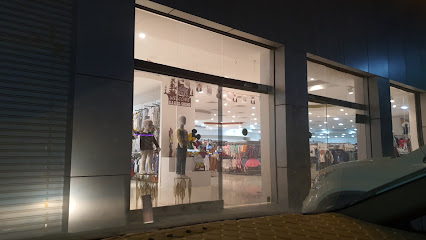
مركز أفنان للتسوق
Explore the vibrant styles and unique fashion offerings at مركز أفنان للتسوق, your ultimate shopping destination in Rustaq, Oman.

MARJAN AL HAJIR SHOPPING CENTER
Explore the vibrant Marjan Al Hajir Shopping Center in Rustaq for a unique shopping experience, local dining, and cultural events.
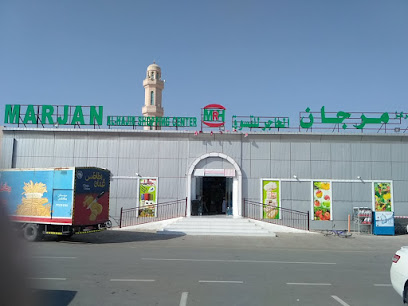
Awabi Mart Rustaq سوق العوابي الرستاق
Discover unbeatable prices and a wide selection of products at Awabi Mart Rustaq, the ultimate discount supermarket in Oman.
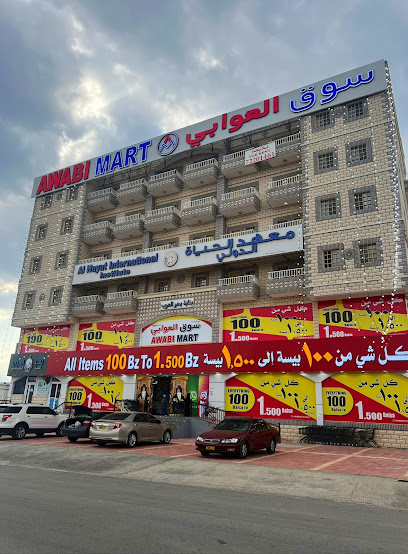
Cousins Boutique
Discover unique Omani fashion at Cousins Boutique, where tradition meets modern style in the heart of Rustaq.
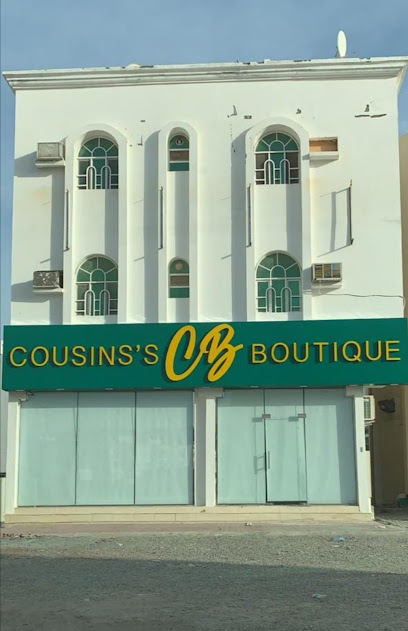
Essential bars & hidden hideouts
Rustaq Fort
Discover the rich heritage and breathtaking scenery at Rustaq Fort, a historical jewel in Oman that captivates every visitor.
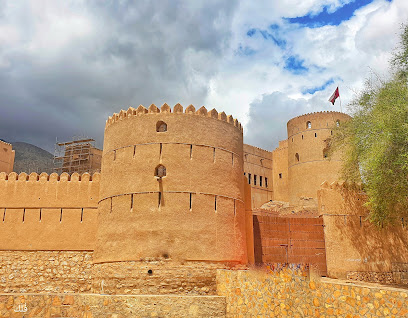
Albasim Restaurant
Experience the rich flavors of Omani cuisine at Albasim Restaurant in Rustaq, where tradition meets hospitality in a welcoming atmosphere.
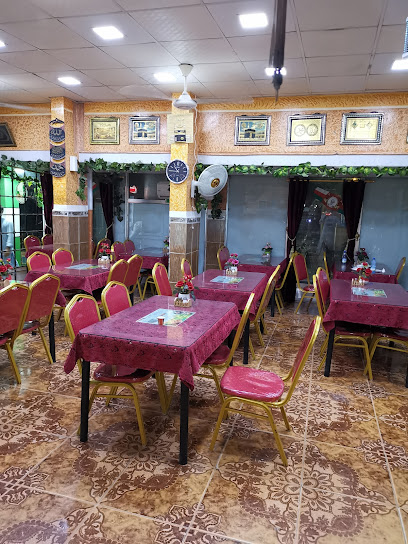
THE VAULT
Experience the elegance of The Vault, Muscat's premier bar located in the Radisson Collection Hotel, offering a vibrant ambiance and exquisite drinks.
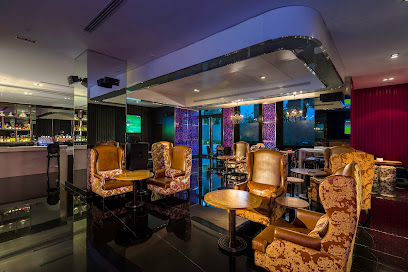
كافيه يولو القهوة الرستاق Coffee Rustaq yolo cafe
Discover Yolo Café Rustaq, where every cup of coffee is a crafted experience in a cozy and inviting atmosphere.
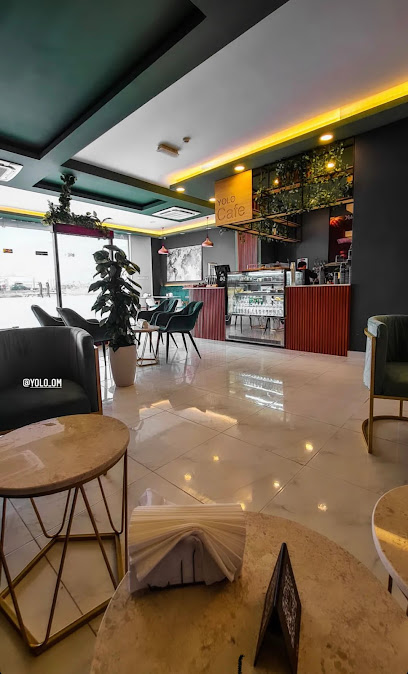
Cohi Bar
Discover Cohi Bar in Muscat, where vibrant nightlife, live music, and delightful drinks come together for an unforgettable experience.
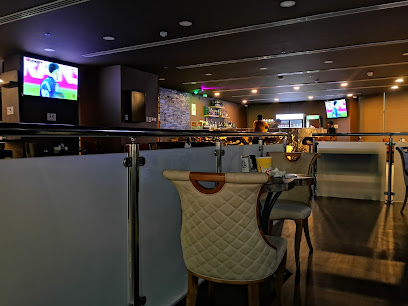
Beach Pool Club Bar نادي بركة الشاطيء
Discover the ultimate relaxation at the Beach Pool Club Bar in Al Mudayq, where sun, sea, and refreshing cocktails await.
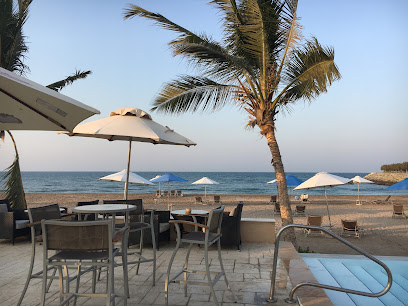
Tickerdaze
Discover Tickerdaze, the ultimate sports bar at Muscat International Airport, blending live sports excitement with delicious food and drink.
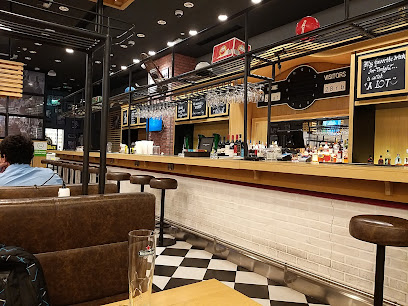
مقهى النسيم الساحر - مقهى شيشة
Discover the enchanting مقهى النسيم الساحر - a hookah bar experience in Rustaq blending tradition and modern comfort.
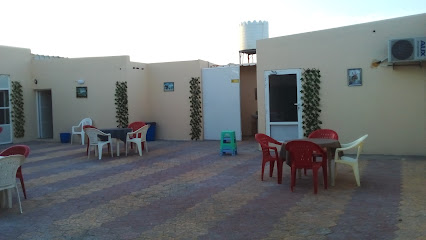
Wadi Bar
Experience the vibrant nightlife of Muscat at Wadi Bar, a stylish destination for drinks and socializing in a friendly atmosphere.
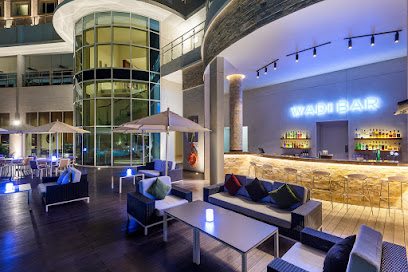
Sundari restaurant | Best Restaurant In Oman
Discover the authentic flavors of Oman at Sundari Restaurant, a culinary sanctuary in Al Batinah, perfect for every food lover.
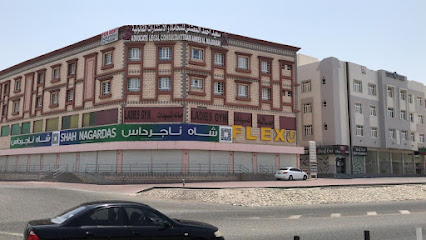
Rustaq
Explore Rustaq, a historical treasure in Oman, renowned for its majestic fort, rejuvenating hot springs, and breathtaking mountain landscapes.
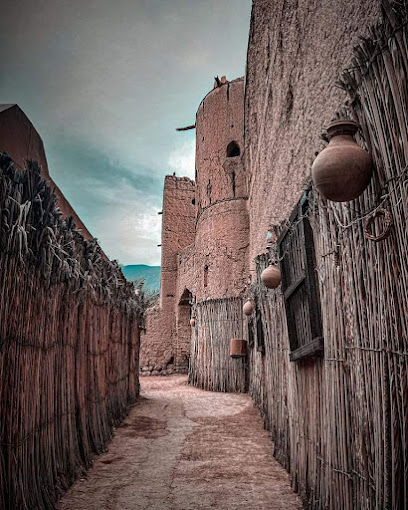
Hamza Restaurant
Experience authentic Indian and Kerala cuisine at Hamza Restaurant, a culinary gem in Rustaq, Oman.
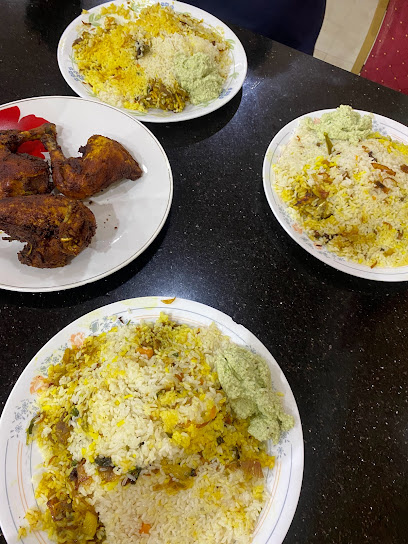
Oasis Castle Lounge
Discover the vibrant Oasis Castle Lounge in Nizwa, where relaxation meets entertainment in a charming bar atmosphere.
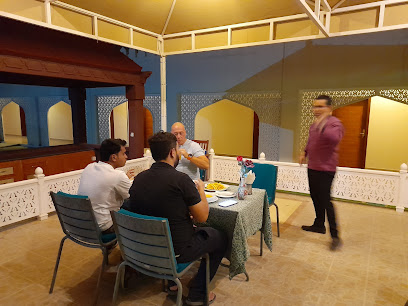
Sahara indian bar
Experience authentic Indian flavors at Sahara Indian Bar in Nizwa, where vibrant cuisine meets a welcoming atmosphere.
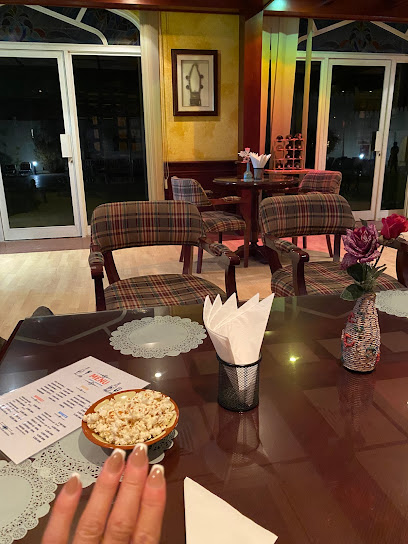
Bar Wedam Al Sahel Muneer Hotel
Savor the rich flavors of Omani cuisine and international delights at Bar Wedam Al Sahel Muneer Hotel in the picturesque Rustaq.
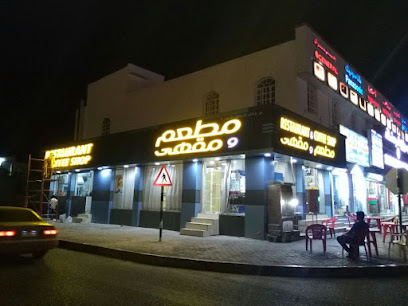
Local Phrases
-
- Helloمرحبا
[marhaba] - Goodbyeوداعا
[wadaa] - Yesنعم
[naam] - Noلا
[laa] - Please/You're welcomeمن فضلك
[min fadlik] - Thank youشكرا
[shukran] - Excuse me/Sorryعذرا
[udhran] - How are you?كيف حالك؟
[kayfa halik?] - Fine. And you?بخير. وأنت؟
[bikhayr. wa ant?] - Do you speak English?هل تتحدث الإنجليزية؟
[hal tatahadath al-inglizia?] - I don't understandأنا لا أفهم
[ana la afham]
- Helloمرحبا
-
- I'd like to see the menu, pleaseأريد أن أرى القائمة، من فضلك
[urid an ara alqaimah, min fadlik] - I don't eat meatأنا لا آكل اللحم
[ana la akul al-lahm] - Cheers!في صحتك!
[fi sahtak!] - I would like to pay, pleaseأود أن أدفع، من فضلك
[awad an adfa, min fadlik]
- I'd like to see the menu, pleaseأريد أن أرى القائمة، من فضلك
-
- Help!النجدة!
[al-najdah!] - Go away!انصرف!
[insarif!] - Call the Police!اتصل بالشرطة!
[itassil bialshurta!] - Call a doctor!اتصل بالطبيب!
[itassil bialtabib!] - I'm lostضاعت الطريق
[da'at al-tariq] - I'm illأنا مريض
[ana mareed]
- Help!النجدة!
-
- I'd like to buy...أريد أن أشتري...
[urid an ashtari...] - I'm just lookingأنا فقط أتفرج
[ana faqat atfarij] - How much is it?كم يبلغ ثمنه؟
[kam yablagh thamanuh?] - That's too expensiveهذا غالي جدا
[hatha ghali jiddan] - Can you lower the price?هل يمكنك خفض السعر؟
[hal yumkinuk khafdh al-si'ar?]
- I'd like to buy...أريد أن أشتري...
-
- What time is it?كم الوقت؟
[kam al-waqt?] - It's one o'clockالساعة الواحدة
[al-sa'ah al-wahidah] - Half past (10)العاشرة والنصف
[al-ashirah wal-nisf] - Morningالصباح
[al-subah] - Afternoonالمساء
[al-masa] - Eveningالمساء
[al-masa] - Yesterdayأمس
[ams] - Todayاليوم
[al-yawm] - Tomorrowغدا
[ghadan] - 1واحد
[wahid] - 2اثنان
[ithnan] - 3ثلاثة
[thalathah] - 4أربعة
[arba'ah] - 5خمسة
[khamsah] - 6ستة
[sittah] - 7سبعة
[sab'ah] - 8ثمانية
[thamaniah] - 9تسعة
[tis'ah] - 10عشرة
[asharah]
- What time is it?كم الوقت؟
-
- Where's a/the...?أين الـ...؟
[ayn al...?] - What's the address?ما هو العنوان؟
[ma hu al-unnwan?] - Can you show me (on the map)?هل يمكنك أن تريني (على الخريطة)؟
[hal yumkinuk an tureeni (ala al-khartah)?] - When's the next (bus)?متى يأتي الحافلة التالية؟
[mata yaati al-hafilah al-taliyah?] - A ticket (to ....)تذكرة (إلى ...)
[tadhkirah (ila ...)]
- Where's a/the...?أين الـ...؟
History of Rustaq
-
Rustaq, located in the Al Batinah region of Oman, has a history that dates back to ancient times. Archaeological evidence suggests that this area was inhabited during the Bronze Age. The early settlers of Rustaq were engaged in agricultural activities, benefiting from the region's fertile soil and plentiful water resources.
-
Rustaq Fort, also known as Al Hazm Castle, is one of the most iconic landmarks in Rustaq. Originally built in the 13th century, the fort played a crucial role in the defense of the region. It was expanded and renovated multiple times, notably in the 17th century during the rule of Imam Sultan bin Saif Al Ya'arubi. The fort's architecture reflects the military prowess and strategic importance of Rustaq throughout history.
-
During the Ya'aruba dynasty in the 17th century, Rustaq served as the capital of Oman. This period marked a time of prosperity and political stability in the region. The Ya'aruba rulers fortified the town and invested in infrastructure, including the construction of impressive forts and irrigation systems, which contributed to Rustaq's growth and significance.
-
The Battle of Rustaq was a significant event in Omani history, taking place in the 18th century. This battle was part of the conflict between the Ya'aruba dynasty and the Persian invaders. Rustaq's strategic location made it a focal point in the struggle for control over Oman. The battle ultimately led to the decline of the Ya'aruba dynasty and paved the way for the rise of the Al Said dynasty.
-
With the establishment of the Al Said dynasty in the mid-18th century, Rustaq continued to be an important administrative and economic center. The Al Said rulers focused on unifying Oman and fostering trade relationships. Rustaq's role as a hub for commerce and governance was solidified during this period, contributing to its enduring legacy.
-
Rustaq is renowned for its rich cultural heritage and traditional crafts. The town is famous for its production of copperware, pottery, and textiles. Local artisans continue to practice age-old techniques, passing down their skills through generations. The weekly souq (market) in Rustaq is a vibrant place where visitors can experience the town's cultural vibrancy and purchase exquisite handmade items.
-
One of Rustaq's natural attractions is its hot springs, known for their therapeutic properties. The most famous of these is Ain Al Kasfa, which has been used for centuries for its healing benefits. These hot springs are a testament to Rustaq's natural beauty and have been a source of relaxation and wellness for both locals and visitors.
-
In recent years, Rustaq has witnessed significant development, with a focus on preserving its historical and cultural heritage while promoting tourism. Efforts have been made to restore and maintain historical sites, making Rustaq a popular destination for tourists seeking to explore Oman's rich history and natural beauty. The town's blend of ancient traditions and modern amenities offers a unique experience for visitors.
Rustaq Essentials
-
Rustaq is located in the Al Batinah South Governorate of Oman. The nearest international airport is Muscat International Airport, approximately 120 kilometers away. From Muscat, you can take a taxi or a bus to Rustaq. The journey typically takes around 1.5 to 2 hours by road. Car rentals are also available at the airport for those who prefer to drive themselves.
-
Rustaq is a relatively small town, and many of its attractions are within walking distance. For longer trips, local taxis are readily available and reasonably priced. Public buses connect Rustaq to other cities and towns in Oman. Renting a car is also a convenient option for exploring the surrounding areas at your own pace. Be sure to have an international driving permit if you plan to rent a car.
-
The official currency in Oman is the Omani Rial (OMR). Credit cards are accepted in most hotels, restaurants, and larger shops, but it is advisable to carry cash for smaller establishments and markets. ATMs are available in Rustaq, but it's a good idea to withdraw sufficient cash in Muscat before heading to Rustaq. Currency exchange services are also available at the airport and in major cities.
-
Rustaq is generally a safe destination for tourists. However, it is advisable to take standard precautions. Avoid walking alone at night in unfamiliar areas and keep an eye on your belongings in crowded places. There are no specific high-crime areas targeting tourists, but it's always best to stay vigilant and aware of your surroundings. Petty crimes like pickpocketing can occur, so be cautious.
-
In case of emergency, dial 9999 for immediate assistance. Rustaq has a local police station and medical facilities to handle emergencies. It is recommended to have travel insurance that covers medical emergencies. For minor health issues, there are pharmacies in the town where you can purchase over-the-counter medications. Always keep a list of emergency contacts and local embassy information handy.
-
Fashion: Do dress modestly, especially when visiting religious sites. Avoid wearing revealing clothing. Religion: Do respect local customs and traditions. Always cover your head when entering mosques. Public Transport: Do be respectful and give up your seat to elderly passengers. Don’t eat or drink on public transport. Greetings: Do greet people with a handshake. A slight bow of the head is also a sign of respect. Eating & Drinking: Do try local delicacies and accept food offerings graciously. Don’t refuse hospitality, as it is considered impolite.
-
To experience Rustaq like a local, visit the local souks (markets) where you can buy fresh produce, spices, and traditional Omani goods. Engage with locals, as they are often friendly and willing to share stories about the town's history and culture. Don’t miss visiting Rustaq Fort, one of the oldest and largest forts in Oman. For a unique experience, take a hike to the nearby hot springs in Al Kasfa, which are renowned for their therapeutic properties. Always respect local traditions and customs to make your visit more enjoyable.
Nearby Cities to Rustaq
-
Things To Do in Bahla
-
Things To Do in Nizwa
-
Things To Do in Muscat
-
Things To Do in Ibri
-
Things To Do in Sohar
-
Things To Do in Al Ain
-
Things To Do in Fujairah
-
Things To Do in Sur
-
Things To Do in Khor Fakkan
-
Things To Do in Dibba Al-Fujairah
-
Things To Do in Ajman
-
Things To Do in Dubai
-
Things To Do in Sharjah
-
Things To Do in Ras Al Khaimah
-
Things To Do in Umm Al Quwain








